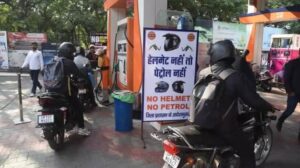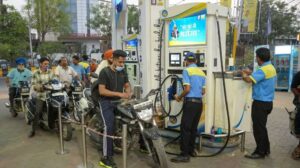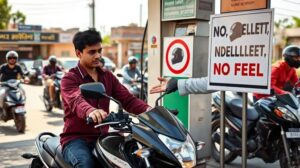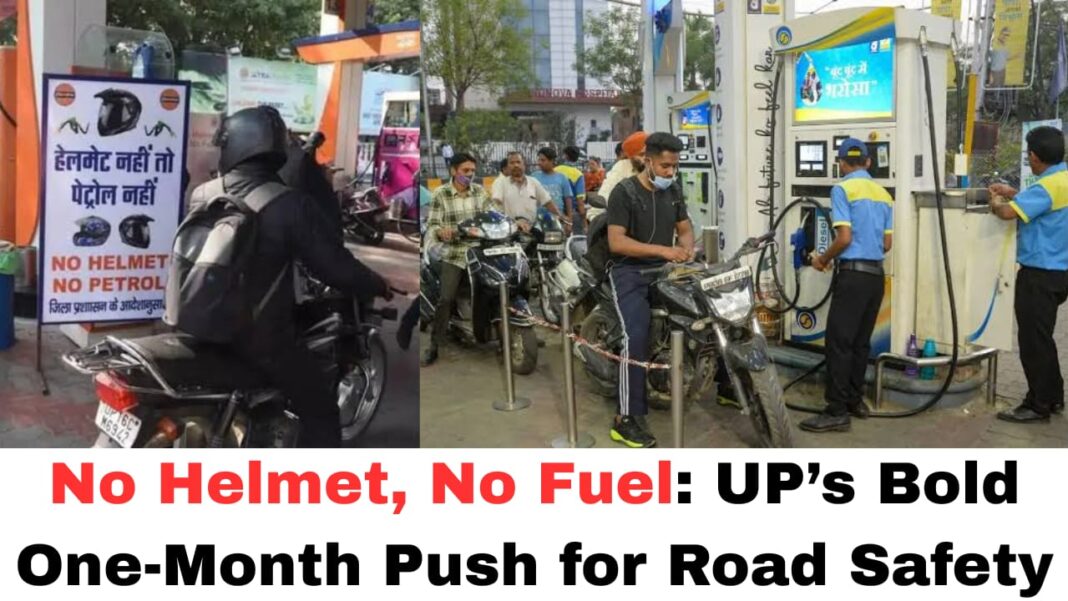Digital News Guru Uttar Pradesh Desk:
“No Helmet, No Fuel” — A New Road Safety Push in Uttar Pradesh
On September 1, 2025, Uttar Pradesh rolled out a robust, month-long road safety campaign under the compelling slogan “No Helmet, No Fuel.” Running through September 30, this statewide initiative mandates that two-wheeler riders must wear helmets to receive petrol—a bold measure aimed at drastically improving helmet compliance and reducing fatalities on the roads.
A Coordinated Push for Safety
The campaign is being spearheaded by District Magistrates, in close coordination with District Road Safety Committees (DRSCs). Enforcement responsibilities fall on the shoulders of multiple government branches—including the police, transport, revenue, and district administration—ensuring wide-reaching coverage across the state.
Chief Minister Yogi Adityanath emphasized that the campaign is not punitive, but a public safety initiative designed to instill safe riding habits. He reinforced the motivational tagline: “First Helmet, Then Fuel.”

The state’s Transport Commissioner, Brajesh Narayan Singh, echoed this intent, framing the campaign as a “pledge for safety” rather than enforcement-focused. He called upon oil marketing companies, petrol station operators, and relevant departments like Food and Civil Supplies to facilitate monitoring and support.
Why the Campaign Matters
Uttar Pradesh has long grappled with one of the highest road accident death tolls in India. In 2023 alone, the state recorded a staggering 23,652 road accident fatalities—the highest among all Indian states. Two-wheeler riders, a particularly vulnerable segment, constitute approximately 44.8% of road fatalities nationwide.
Helmet use remains legally mandated in India under Section 129 of the Motor Vehicles Act, 1988, with violations carrying penalties under Section 194D. These regulations have also received backing from the Supreme Court’s Road Safety Committee to be rigorously enforced.
Challenges and Criticisms Ahead
While the campaign’s intentions are laudable, it brings into focus a pressing concern: the proliferation of counterfeit and unsafe helmets. According to Rajeev Kapur, President of the Two-Wheeler Helmet Manufacturers Association (2WHMA), up to 95% of low-cost helmets—priced at around Rs 110—are fake and structurally unsound, potentially shattering even on minor impact.
Further, broader investigations suggest that about 70% of helmets sold in Delhi have failed basic impact tests, raising serious safety alarms.
Kapur is advocating for strict enforcement of Motor Vehicle Rule 138F, the mandatory inclusion of two BIS-certified helmets with every two-wheeler sale, hefty penalties and FIRs against fake helmet manufacturers, and extensive public education campaigns—all critical moves to reinforce genuine safety.

Implementation Mechanism: How It Works
- At the pump: Petrol stations are instructed to deny fuel to two-wheeler riders not wearing helmets, with oversight by administrative enforcement teams.
- Operational leadership: District Magistrates and DRSCs lead the campaign at the local level. Support comes from police, transport, revenue, and administrative bodies.
- Support roles: The Food and Civil Supplies Department monitors compliance at petrol pumps. The Information and Public Relations Department handles public outreach and awareness.
- Infrastructure cooperation: Oil marketing companies like IOCL, BPCL, and HPCL, alongside petrol pump operators, are asked to actively participate.
Projected Impact and Future Considerations
Past iterations of similar campaigns have shown strong potential: observing that riders tend to quickly adapt and start arriving with helmets, reducing resistance while maintaining fuel sales.
If the current initiative succeeds, it could significantly lower accident-related head injuries and fatalities, while fostering a safer riding culture across the state.
However, its long-term success depends on:
- Ensuring effective enforcement, especially at remote or underserved areas.
- Cracking down on the fake helmet market, through regulatory and punitive measures.
- Sustaining public awareness and behavioural change—transforming helmet use from a legal obligation to a personal safety instinct.

In Summary
Uttar Pradesh’s “No Helmet, No Fuel” drive, which began on September 1, 2025 and will continue through September 30, marks a determined attempt to curb two-wheeler fatalities by enforcing helmet use at petrol pumps. Under the leadership of District Magistrates and supported by multiple agencies, the campaign is built on a foundation of collaboration, not coercion. The central message remains clear: “Helmet first, then fuel.”
Still, the challenge of unsafe or counterfeit helmets looms large. Unless addressed concurrently—with strict regulation, industry support, and public education—the campaign risks falling short of its lifesaving potential.
Watch closely as Uttar Pradesh attempts this public safety intervention—if well-implemented and sustained, it could serve as a model for other states tackling road safety at the grassroots level.
You May Also Read: IMD Flags 15 mm/hr Rainfall with Thunderstorms: Punjab, UP, MP Under Red Alert








